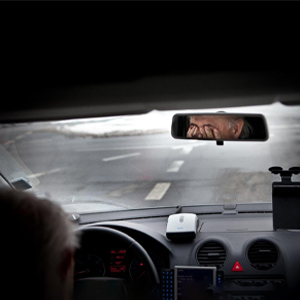The Impact of a DUI on Your Driver's License in Illinois
 Being charged with a DUI in Illinois has serious repercussions, particularly regarding your driver's license status. As penalties can range from temporary suspensions to permanent revocations, understanding the statutory implications is crucial for anyone facing such charges. The impact on daily life can be significant – from the inability to commute to work to the legal complexities of regaining driving privileges. Below, we will unpack the essential elements drivers should be aware of following a DUI arrest in Illinois.
Being charged with a DUI in Illinois has serious repercussions, particularly regarding your driver's license status. As penalties can range from temporary suspensions to permanent revocations, understanding the statutory implications is crucial for anyone facing such charges. The impact on daily life can be significant – from the inability to commute to work to the legal complexities of regaining driving privileges. Below, we will unpack the essential elements drivers should be aware of following a DUI arrest in Illinois.
The Immediate Aftermath of a DUI Arrest in Illinois: Understan- ding the Consequences for Drivers
When a driver is arrested for a DUI in Illinois, the law enforcement process begins with a series of immediate consequences. These may include a night in jail, towing one's vehicle, and issuing a temporary driving permit pending further action. The experience can be disorienting as the driver grapples with what lies ahead, especially concerning their driver's license and personal mobility.
A key component following the arrest is the statutory summary suspension, an administrative action taken by the Illinois Secretary of State's Office. This action will typically commence on the 46th day after the arrest, representing a swift move towards restricting the driver's license. This period gives individuals a short window to consult legal assistance to understand their rights and prepare for the upcoming challenges.
During this critical time, drivers are urged to be proactive. Seeking a reliable drunk driving lawyer in Illinois can make a significant difference in navigating the legal landscape that follows a DUI arrest. With legal representation, drivers can better comprehend the ramifications of their arrest and begin to craft a defense or negotiate terms that could impact their driving future.
Administrative Penalties and the Automatic Suspension of Your Illinois Driver's License
In Illinois, the penalties for driving under the influence are applied through the criminal justice system and administratively through the Secretary of State's Office. An automatic suspension of the driver's license, known as the statutory summary suspension, is enforced regardless of the criminal proceedings. Drivers found to have a blood alcohol content above the legal limit, or those who refuse testing, will face this immediate action.
This suspension differs in duration depending on the offense. For a first-time DUI offender who fails a chemical test, the suspension will last for six months. However, refusing the test will lead to a 12-month suspension for first-timers. Repeat offenders face a one-year suspension for failing the test and a three-year suspension for refusal, demonstrating how the administrative penalties escalate with each additional DUI charge.
Importantly, during the suspension period, drivers may apply for a Monitoring Device Driving Permit (MDDP), which allows them to drive vehicles equipped with a Breath Alcohol Ignition Interlock Device (BAIID). This device requires the driver to provide a breath sample before starting the vehicle and periodically while driving, ensuring the driver remains sober behind the wheel.
 Steps to Regain Your Driver's License in Illinois After a DUI Conviction
Steps to Regain Your Driver's License in Illinois After a DUI Conviction
After a DUI conviction, Illinois residents must adhere to a struc- tured process to regain their driving privileges. This process involves multiple steps, often with serving the mandatory license suspension or revocation period. Once this period elapses, drivers must then begin fulfilling any additional court-ordered require- ments, which can include attending DUI education classes or undergoing an alcohol evaluation.
Applicants seeking to reinstate their license must apply for a hearing through the Illinois Secretary of State's office. These hearings can either be formal, generally for those with multiple DUI offenses or serious consequences resulting from their DUI, or informal for less complicated cases. At these hearings, drivers can demonstrate that they are no longer a public safety risk and have complied with all necessary rehabilitation measures.
Reinstating a license also involves financial responsibilities. Fees and fines, including a reinstatement fee and proof of financial responsibility, are often levied, typically provided by purchasing high-risk auto insurance known as SR-22 insurance. Drivers must maintain this insurance for a specified amount of time, showing diligence and consistent responsibility after a DUI conviction.
Ultimately, the goal is to persuade the authorities that the driver has taken meaningful steps towards rehabilitation and is committed to safe and responsible driving. The outcome of this process will heavily depend on the individual's adherence to the guidelines set forth by Illinois laws and the Secretary of State's office.
Overall, navigating the aftermath of a DUI arrest in Illinois entails grappling with immediate consequences, administrative penalties, and a structured process for license reinstatement. Understanding the statutory implications and seeking legal guidance can significantly impact the outcome, mitigating long-term repercussions and facilitating a smoother transition back to driving privileges.

